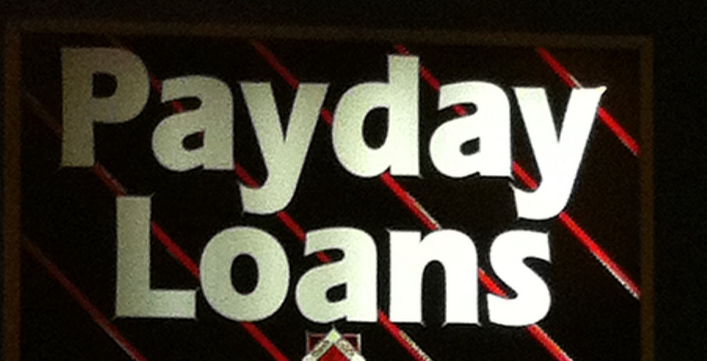A life of stealing started with the snatching of a candy bar and transformed into an illegal multi-million dollar online payday lending scheme that allegedly defrauded thousands of people. At least that’s what federal prosecutors say led to charges against a Pennsylvania man recently. [More]
scam

FTC Releases Spanish-Language Graphic Novel Warning Consumers Of Notario Scam
It’s not unusual for the Federal Trade Commission to issue advisories or warnings about potentially harmful frauds, scams and schemes. Today, the agency took a more unique approach to alerting Spanish-speaking consumers to the often-underreported “notario” deception by releasing a graphic novel on the subject. [More]
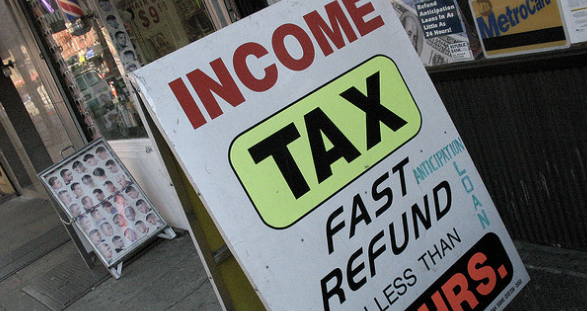
CFPB, Navajo Nation Team Up To Put An End To Tax Scheme Targeting Low-Income Consumers
For many low-income consumers, tax time provides an opportunity to catch up on bills and get back on track financially. Unfortunately, there are unscrupulous companies out there that aim to make money of these same consumers by pointing them in the direction of high-cost tax-refund-anticipation loans. That appears to be the case for the owner of New Mexico-based H&R Block franchises and a tax-time loan company operating an alleged illegal tax-refund scheme. [More]

Be On The Lookout For Boxes Of Rocks When Shopping For Post-Holiday Deals
In the coming weeks, some retailers will be offering deals on unsold stock of popular holiday gift items. Sometimes stores are up-front about whether or not a particular product was previously purchased and returned, while many just put these items back into inventory with the truly new stuff. That’s why you need to open up those boxes before you leave the store — or else risk getting home to find you’ve purchased a box of rocks. [More]
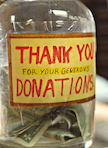
Beware Of Scammers Using The Washington Mudslide To Profit Off Your Generosity
As the Washington mudslide death toll continues to rise and many people remain missing, you may feel the urge to donate to charities poised to help the victims. Donating to the cause is commendable, but unfortunately there are evil people in this world who take one person’s misfortune and use it for their personal gain. So the Federal Trade Commission is once again reminding consumers to be wary of charity scams. [More]

How Giving Your Contact Info To “Yellow Page USA” Turns Into Legal Threats And An Invoice For $1,200
What do you do when your company receives a free solicitation for a business listing and Facebook page? You might be tempted to snatch up a good deal, but there’s a good chance that deal will land you in the middle of a widespread scam. That seems to be the case for a New Jersey business owner as he faces threats of lawsuits and other action that could damage his credit. [More]

FTC: Work-From-Home Coaching Services Scam Conned Millions From Consumers
Making thousands of dollars a month by working from your couch might seem like a dream come true. But don’t quit your day job just yet, because it’s most likely a scam. Fortunately, there’s now one less “work-from-home” scheme seducing consumers thanks to the Federal Trade Commission. [More]

The High Price Of Love: Woman Sent $500,000 To Man She Met On ChristianMingle.com
Remember, money can’t buy you love. Especially, if that love costs you more than half a million dollars. That’s how much a San Jose woman lost when she fell victim to an online dating scam. [More]

Scammers Try To Rent Out Homes They Don't Own
Scammers are grabbing photos from real estate websites and opening email addresses in homeowners’ names in order to trick wouldbe renters into sending cash in exchange for a lease to a house the scammer doesn’t own. Tricky! [More]

Half of Madoff "Victims" Didn't Actually Lose Money
Most investors who put money into Bernard Madoff’s funds over the decades he was in business came up losers when the house of cards collapsed. Some, however, lost more than others. According to a new court filing, about half of the investors who had accounts in Madoff’s Ponzi scheme at the time it was shut down didn’t actually lose any of the original principal they put into the funds.
../../../..//2008/10/20/energy-scammers-are-still-stalking/
Energy scammers are still stalking the good people of Brooklyn, according to the Gowanus Lounge. Not only are they going door-to-door, but now they’re calling, too. Remember: if some stranger calls claiming that they are from a company you do business with and asks you to “confirm you account information,” tell them you’ll call them back at their usual number and hang up. [Gowanus Lounge] (Thanks, Chris!)

Yet Another Reader Scammed By FreeCreditReport.com
Here it is folks, your semi-annual reminder that FreeCreditReport is not free. Free credit reports can be found at AnnualCreditReport.com. FreeCreditReport.com is a pay site. As in you will be billed. As in not free.
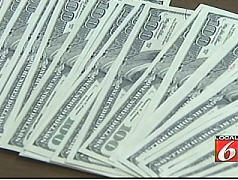
Customers Claim That Wachovia Is Handing Out Counterfeit Bills
Something shady may be afoot at a Central Florida Wachovia branch…two customers say that a teller gave them counterfeit bills, according to Local 6 news in Orlando. The bank is refusing to give them a refund, claiming that they have no way of knowing if those counterfeit bills are the same ones the teller gave out, but Local 6 says that they’ve learned that Wachovia previously gave a customer with a similar story a refund.

Shady Energy Resellers Stalk Hallways Of Brooklyn
A reader writes: “Another day, another energy scammer in Brooklyn. This was the most misleading one yet—a man was walking around and banging on every door up and down the hallways of my building—identifying himself as having been “sent by building management about our ConEd bill.” So I ran and got my video camera, which also serves as a digital voice recorder. Here is the conversation…The gentleman vacillated between telling the truth, misleading me and completely lying.”

1-800-Flowers Sends Box Of Chocolate Peanuts From Walmart For $14.99
When I ordered flowers for my wife, I added a $14.99 box of chocolates, but got an .88 cent box of peanuts
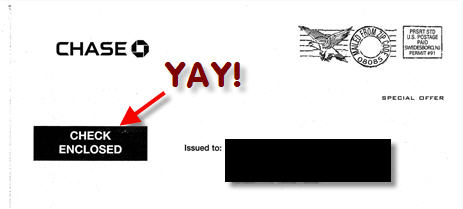
Chase: By Cashing This $9.25 Check You Agree To Give Us $59.99
Reader Aaron writes in to complain about a “scam” that he can’t believe is legal. Many of you know about this little marketing tactic, and we’ve written about it before, but some of you probably do not.
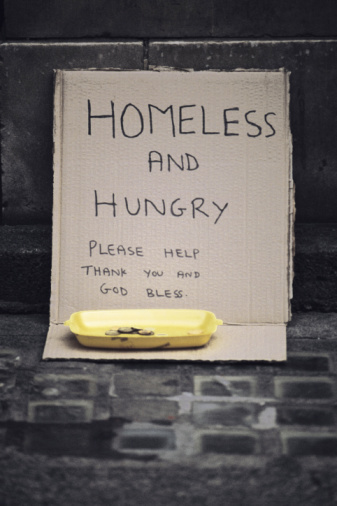
Who Gives Money to the Homeless?
Blunt Money has opened up an interesting thread about giving (or not giving) to beggars. Some of the comments bring back memories:

Connecticut Sues Best Buy For Tricking Customers With Secret Internal Website
The Connecticut Attorney General has announced a lawsuit against Best Buy in regards to a secret internal website that is identical to their public website except for the prices. Consumerist has received reports of this website being used to attempt to trick our readers as recently as March 19, 2007.


